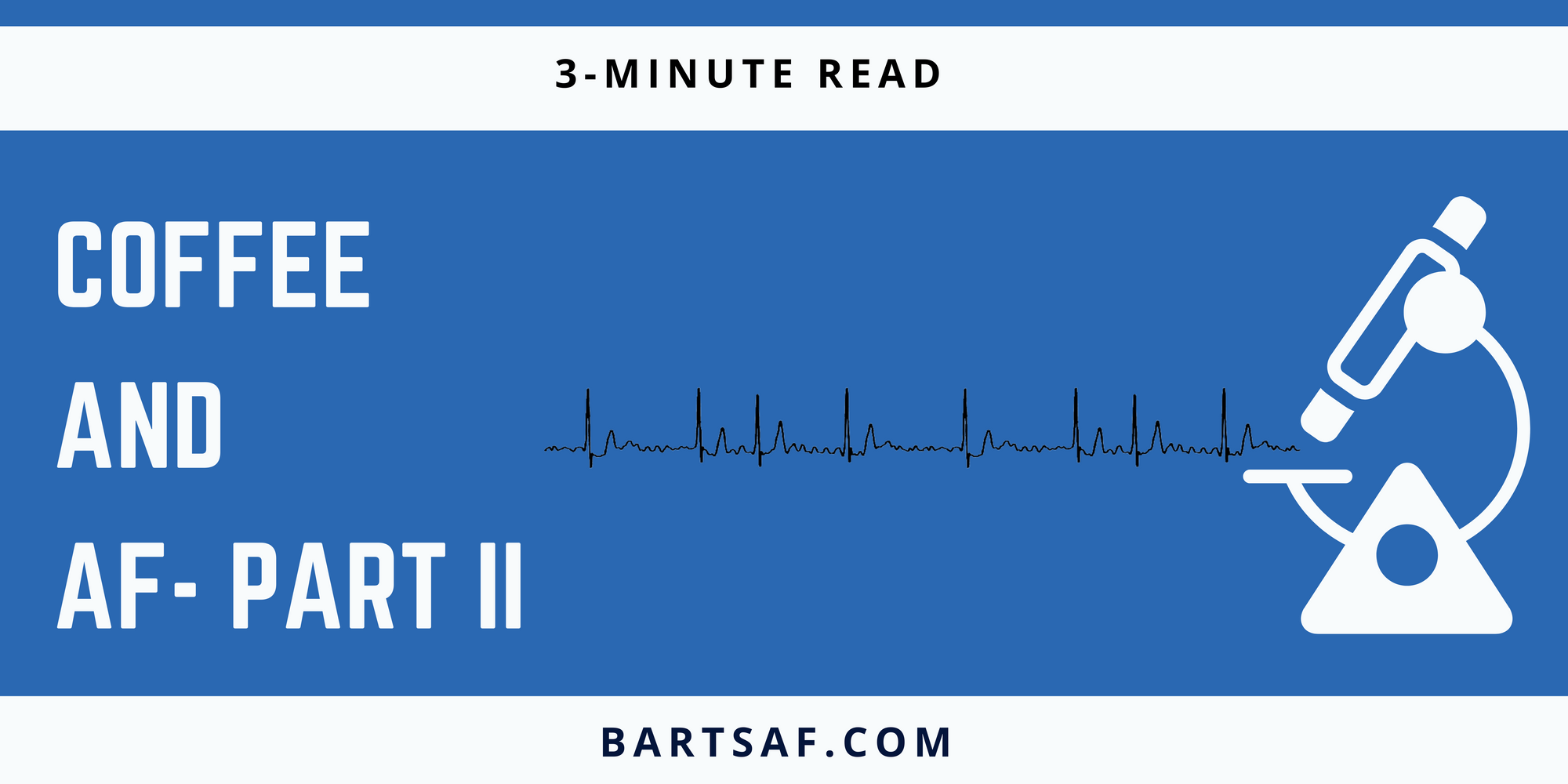More on Coffee and AF!

I want to revisit the relationship and recommendations about coffee and AF. In May we looked through the existing data on this. Ultimately, the evidence was lacking to suggest any increased AF risk from drinking up to 5 cups of coffee per day. This is important because many patients are advised to cut out "coffee and alcohol" if they have intermittent AF, but if you dig into the data, the evidence isn't really there.
Now, we're returning to this because new data has emerged that gives further insight into this relationship. A group of researchers analysed data held in the UK Biobank (a large registry that collects many data points on individuals in the UK and tracks them over time) and looked at the associations between different types of coffee and the risks of different types of heart diseases.
The advantage of 'UK Biobank studies is that they are often huge, recruiting hundreds of thousands of participants and tracking them over many years. The disadvantage is that this is all observational data, so you can't say a certain characteristic caused a result because a there may be an underlying reason driving the association instead. (This is the fundamental difference between correlation and causation).
Anyway, going back to this specific study- almost 450,000 participants were followed-up for an average of 12 years. Each reported their coffee drinking habits (type: ground coffee, instant coffee, decaffeinated coffee, and quantity: cups per day) at the start and were free of any heart disease.
Ground and instant were associated with a significant reduction in AF at 1–5 cups/day when compared to non-coffee drinkers but this was not for decaffeinated coffee. 4–5 cups/day for ground coffee and 2–3 cups/day for instant coffee were associated with lowest risk (10-20% lower than in the no coffee group).

But how can this be the case? We spoke in the previous article that caffeine can stimulate a fight or flight response- so how might we explain lower rates of AF in the caffeinated participant groups.
Coffee is a complex beverage. There are hundreds of organic components in each cup. However, the reduction in AF risk wasn't seen in the decaffeinated coffee group, suggesting caffeine may be involved here. Coffee keeps us away by temporarily blocking the adenosine (A2A) receptors in the brain. Adenosine also modifies cells in a way such that they potentially become more electrically irritable. And so a side effect, blocking this receptor may be that it protects against this irritability and so you get the lower rate of AF.
Alternatively, it may be that an independent feature such as age, obesity or blood pressure was lower in the instant/ground coffee groups and thus it may be that we caffeine intake is a correlation rather than cause. Going back to the trial design comment- the way to determine causation would be through randomised controlled study (randomising participants to drink a specific coffee type (e.g. instant versus decaffeinated) based on random allocation. However, as you can imagine, this would be tough to do and there may be a lot of switching over between allocated groups. The scientific community need to consider if this is a worthwhile study to run. What do you think?
Perhaps, as an avid coffee drinker myself, I'm biased but I think the findings of this paper are humbling. I can recall in medical school being taught to check "alcohol and caffeine habits" in patients with AF in order to suggest lifestyle changes and so it's been great to see how that opinion has shifted to neutrality based on the data and potentially even benefit.
“The more I learn, the more I realize how much I don't know.”
Albert Einstein
David Chieng, Rodrigo Canovas, Louise Segan, Hariharan Sugumar, Aleksandr Voskoboinik, Sandeep Prabhu, Liang Han Ling, Geoffrey Lee, Joseph B Morton, David M Kaye, Jonathan M Kalman, Peter M Kistler, The impact of coffee subtypes on incident cardiovascular disease, arrhythmias, and mortality: long-term outcomes from the UK Biobank, European Journal of Preventive Cardiology, 2022;, zwac189, https://doi.org/10.1093/eurjpc/zwac189
